Chelsea vs Liverpool: Premier League – teams, start, lineups

Who: Chelsea vs LiverpoolWhat: English Premier LeagueWhere: Stamford Bridge in London, United KingdomWhen: Saturday, October 3, at 5:30pm (16:30 GMT)How to follow: We’ll have all the build-up on Al Jazeera Sport from 11:15 GMT in advance of our live text commentary stream. Premier League champions Liverpool travel to Chelsea after a rare barren run under Arne Slot. Recommended Stories list of 4 itemsend of list The Dutchman led the Reds to their record-equalling title win last season – his first since replacing the popular Jurgen Klopp – but a recent blip has led to questions as to whether the club’s transition between managers will be more noticeable this term. Chelsea, meantime, are hoping to build on their FIFA Club World Cup victory earlier this year, but have not had the smoothest start to the season themselves. Al Jazeera Sport takes a look at the pick of the weekend’s Premier League fixtures. What is Chelsea’s take on the visit of Liverpool? Liverpool’s back-to-back losses over the last week have shown that they are vulnerable, but that will not make this weekend’s Premier League clash with the champions any easier for Chelsea, the London-based club’s manager Enzo Maresca said on Friday. Leaders Liverpool started the league campaign with five straight wins but lost at Crystal Palace last Saturday, before a defeat away to Galatasaray in the Champions League on Tuesday. Chelsea, who have lost their last two games in the top-flight and sit eighth in the table, seven points adrift of Liverpool, will look to build on the momentum from Tuesday’s 1-0 Champions League win over Benfica at Stamford Bridge. Advertisement “There is a vulnerability about any team in the world, not just Liverpool. But if a team wins every game, it is impossible to catch them. Now, they lost one or two games. That shows vulnerability,” Maresca told a news conference before Saturday’s home game. “I don’t think now it is better to play Liverpool. It is always a tough game, always a big team.” Do Chelsea have a disciplinary problem? Red cards have plagued Chelsea, with goalkeeper Robert Sanchez dismissed five minutes into the 2-1 defeat at Manchester United and Trevoh Chalobah being sent off in last weekend’s 3-1 loss to visiting Brighton & Hove Albion. “Most of the games we didn’t get the points were because of the red cards. Also, the injury situation, we have eight players out. It’s a mixed combination, but we don’t have any doubt that slowly we will be again where we need to be,” Maresca said. Has Chelsea’s blip surprised Maresca? The Italian, who has led Chelsea to the UEFA Conference League and Club World Cup trophies this year, said he had enjoyed the start to the 2025-26 season despite the struggles. “It’s normal. I am not thinking, [being] the Chelsea manager, everything is always going to be in place. You need to adjust, you need to evolve,” he added. “I consider [Liverpool] the best team in England at the moment because they have shown that, and they won the Premier League. We are improving and trying to solve problems. For sure, in the end, we will be there and close.” Alisson’s injury means he will miss @LFC‘s visit to Chelsea on Saturday 🤕 What do you notice about Liverpool’s record with and without the Brazilian goalkeeper? pic.twitter.com/CUjImBTlvw — Premier League (@premierleague) October 2, 2025 Alisson injury blow hits Liverpool Liverpool manager Arne Slot already said Alisson would miss the league match at Chelsea, following his injury in the defeat at Galatasaray in midweek, but confirmed on Friday that the keeper would not be joining up with Brazil for its friendlies against South Korea on October 10 and Japan four days later. Asked for a timescale for Alisson’s absence, Slot said, “It depends on how fast the recovery goes. It’s clear not Saturday, he’s not going to play for Brazil, and I would be surprised if he’d be there for the first game after the international break [against United at Anfield on October 19]. “From there on, things can go a bit faster or a bit slower. It’s always difficult to say.” It means Georgia international Giorgi Mamardashvili will get a run in the first team after joining on a full-time basis from Valencia during the offseason. Advertisement What is Liverpool’s take on their form before Chelsea match Liverpool is coming off back-to-back defeats under Slot for just the second time since he arrived in the summer of 2024. Slot said he saw opponents start to work out Liverpool’s style of play under him in the second half of last season – when the team was already well on its way to winning the Premier League title – and that it has continued into this campaign. Liverpool is also trying to gel after a $570m spending spree on new players in the summer transfer window, with the likes of Florian Wirtz and Alexander Isak adjusting to life at their new club. Slot suggested Liverpool will start turning to being more efficient at set pieces – an approach he called the “new reality” in the Premier League – to break down opponents. “Jurgen gave me a lot of gifts, but one of the gifts he gave me was [finishing] third the year before and fifth the year before that, and him being so well known that a new manager came in and everybody thought, ‘OK, let’s start to play against Liverpool,’” Slot said. “Teams played in a completely different way in the first half of the season against us than they did when we were top of the league after half the season and top of the Champions League. I can see this going into this part of this season. We have to find answers to that, and last season, one of the answers was the set piece. Like many teams, we have to unlock low blocks with set pieces and this season we haven’t done that — yet.” What happened the last
Pro-Palestine protesters target Italy training for Israel World Cup tie
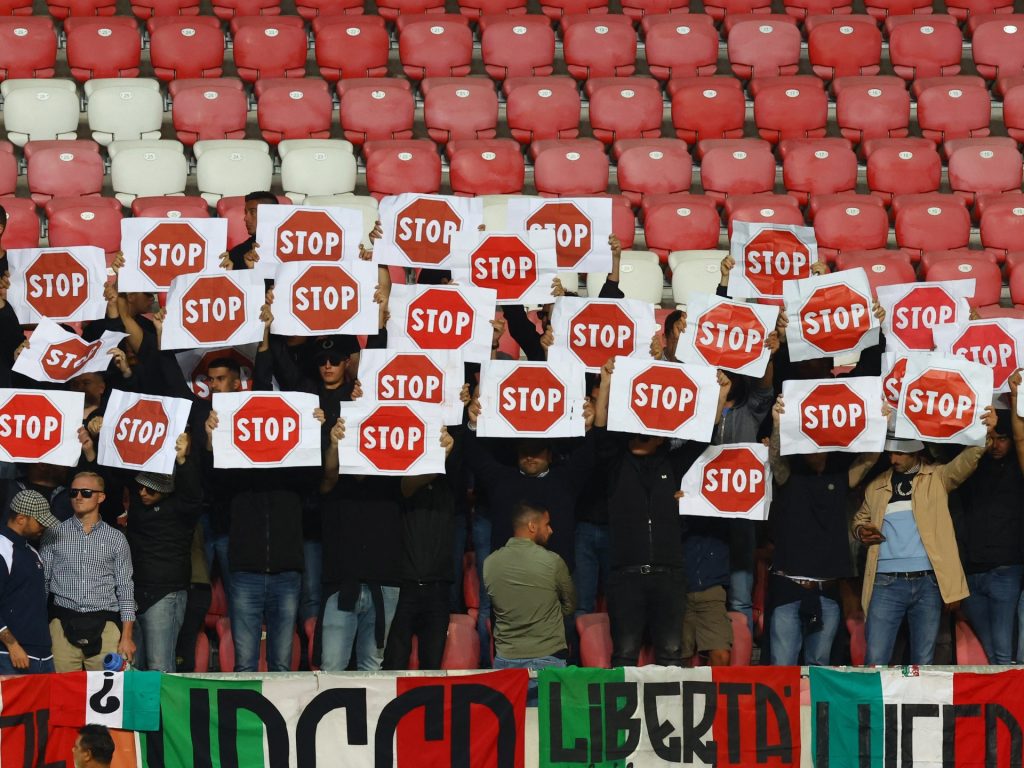
Italy are due to play Israel in a FIFA World Cup qualifier in Udine but there have been calls for a boycott. Published On 3 Oct 20253 Oct 2025 Click here to share on social media share2 Share Pro-Palestinian protesters approached the gates of the Italy football team’s training centre on Friday to demand the cancellation of its upcoming World Cup qualifier against Israel due to the war on Gaza. The protest was part of a national strike that was reacting to Israeli forces’ interdiction of an aid flotilla. Recommended Stories list of 4 itemsend of list Italy is scheduled to host Israel in Udine on October 14. But UEFA is considering suspending Israel over the war. The players were not at the Coverciano training centre in Florence, but the squad will convene there on Monday. Protesters appeared to behave peacefully on the opposite side of the street from the football complex, holding aloft a banner that read in Italian, “Let’s stop Zionism with the resistance.” A protest leader grabbed a microphone and shouted, “How can you still allow Israel, a Zionist and criminal state, to play football games?” Dozens of protests have erupted across Italy since Wednesday night, after the Israeli navy intercepted the Global Sumud Flotilla, detaining its activists. On Friday, workers and students took to the streets after the country’s largest unions called for a one-day general strike in solidarity with the Palestinians and the flotilla. Hundreds of trains were cancelled or delayed, as were several domestic flights, and many private and public schools closed. The Italian Football Coaches’ Association (AIAC) pushed in August for Israel to be suspended from international competition for its war on Gaza. Adblock test (Why?)
Venezuela slams presence of US F-35 fighter planes spotted off coast
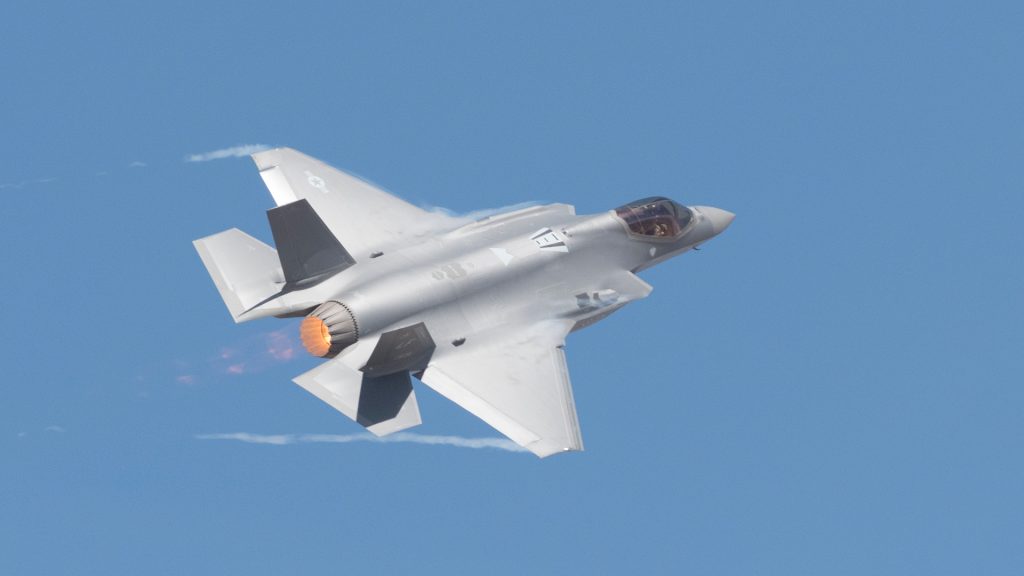
Venezuelan government calls on US Defense Secretary Pete Hegseth to cease ‘thrill-seeking and warmongering posture’. Published On 3 Oct 20253 Oct 2025 Click here to share on social media share2 Share Venezuela’s government has blasted an “illegal incursion” near its borders by United States warplanes and accused the US of “military harassment” and threatening the “security of the nation”. Venezuelan Defence Minister General Vladimir Padrino said on Thursday that at least five F-35 fighter jets had been detected, in what he describes as a threat that “US imperialism has dared to bring close to the Venezuelan coast”. Recommended Stories list of 4 itemsend of list “We’re watching them, I want you to know. And I want you to know that this doesn’t intimidate us. It doesn’t intimidate the people of Venezuela,” Padrino said, speaking from an airbase, according to the Agencia Venezuela news outlet. “The presence of these planes flying close to our Caribbean Sea is a vulgarity, a provocation, a threat to the security of the nation,” Padrino said. “I denounce before the world the military harassment, the military threat by the US government against the people of Venezuela, who want peace, work and happiness,” he said. The presence of the US combat planes was detected by the country’s air defences, air traffic control systems at Maiquetia international airport, which serves the capital Caracas, as well as a commercial airliner, Venezuelan authorities said. In a joint statement, Venezuela’s foreign and defence ministries said the US combat planes were detected 75km (46.6 miles) “from our shores”. If the planes came no closer than the distance mentioned by Venezuelan authorities, then they would not have violated the country’s airspace, which extends about 12 nautical miles, or 22km, off the coast. Advertisement Still, the ministries accused the US of flouting international law and jeopardising civil aviation in the Caribbean Sea. Venezuela “urges US Secretary of War Peter Hegseth to immediately cease his reckless, thrill-seeking and warmongering posture”, which is disturbing the peace of the Caribbean, the statement added. Venezuela denuncia incursión ilegal de aviones de combate de EEUU en sus costas: «Provocación que amenaza la soberanía nacional» (+Comunicado)https://t.co/GnR4wLRDzz — Agencia Venezuela News (@AgenciaVNews) October 2, 2025 The Pentagon has yet to respond to requests for comment from media organisations. US media reported earlier on Thursday that President Donald Trump has notified Congress that the US is now engaged in “non-international armed conflict” against drug cartels, members of which would now be considered “unlawful combatants”. Trump’s move to a more formal war footing follows on from the US administration’s rebranding of Latin American drug cartels as “narco-terrorists” who are seeking to destabilise the US by trafficking illegal drugs across US borders. The move follows weeks of tension with Venezuela after Trump dispatched US F-35 stealth fighter jets to Puerto Rico, a US territory in the Caribbean, as part of the biggest military deployment in Latin America in decades and which has already seen air attacks on boats off the Venezuelan coast that the US president alleged were involved in drug trafficking. So far, 14 people have been killed in the US attacks off Venezuela that officials in Caracas and several independent experts have described as extrajudicial killings. Eight US warships and a nuclear submarine have also been deployed to the region as part of Trump’s so-called operation to combat drug trafficking, but which Venezuela’s President Nicolas Maduro says is a covert bid to bring about regime change in his country. Adblock test (Why?)
‘Zubeen was for all’: Singer’s death unites India’s religiously torn Assam

Barpeta/Guwahati, Assam, India – For more than 15 years, truck driver Imam Hussain found solace in singer Zubeen Garg’s voice and music as he drove his vehicle on quiet and lonely nights along the Himalayan hills and plains of the northeastern Indian state of Assam. It was a period in which Bengali-speaking Muslims – the community 42-year-old Hussein belongs to – increasingly came under attack in Assam. They’ve been accused of being outsiders – even infiltrators – in their own home. Amid soaring Hindu-Muslim tensions, the music of Garg – a Hindu – served as a rare unifier. “His music was my inner peace,” said Hussain. Hussain says Garg’s songs gave him inner peace amid communal divide in Assam [Arshad Ahmed/Al Jazeera] On September 19, Garg died by drowning near Lazarus Island in Singapore, where he was scheduled to perform at the Northeast India Festival, an event that celebrates the art and culture of the Indian region. The sudden death of the 52-year-old artist, who enjoyed a cult-like status among millions of his fans in and outside Assam, triggered a massive outpouring of grief that further cemented his stature as a public figure whose appeal spanned divisions that have otherwise fractured the state. The singer’s wife, Garima Saikia Garg, issued a statement, saying her husband “suffered a seizure attack” while swimming in the sea. While Hussain was mourning Garg’s death, so was Prime Minister Narendra Modi, whose Hindu majoritarian Bharatiya Janata Party (BJP) is accused by critics of fanning Hindu-Muslim divisions nationally and in Assam. Advertisement “He will be remembered for his rich contribution to music,” Modi said in a condolence message. “His renditions were very popular among people across all walks of life.” Thousands gather to have a last glimpse of singer Zubeen Garg in Guwahati, Assam [Zakir Hussain/Al Jazeera] Assam’s Chief Minister Himanta Biswa Sarma, who belongs to Modi’s party, said the state “lost one of its favourite sons”. “Zubeen’s voice had an unmatched ability to energise people, and his music spoke directly to our minds and souls. He has left a void that will never be filled,” Sarma said. The Assam government declared four days of state mourning as Sarma flew to the capital, New Delhi, to receive Garg’s body when it returned from Singapore. A polarised backdrop Two days later, on September 21, tens of thousands of Garg’s fans gathered outside the main airport in Guwahati, Assam’s biggest city. They waited as state officials received Garg’s body after it landed. Then, they marched behind a convoy carrying the body to a stadium some 30 kilometres (19 miles) away for public viewing, singing some of his most famous songs in unison. Some held his posters, while others walked teary-eyed with candles in their hands. After four days of state mourning, Garg was cremated on September 23 with full state honours and a 21-gun salute. Those scenes of unity were a break from the religious and linguistic fractures that have deepened in Assam in recent years. Grieving fans gather for the last rites of singer Zubeen Garg in Guwahati, Assam [Zakir Hussain/Al Jazeera] The fault lines between the Indigenous Assamese-speaking and the mostly migrant Bengali-speaking communities in Assam aren’t new: They go back nearly two centuries, when the British brought large numbers of Bengali-speaking Hindus from Bengal to run the colonial bureaucracy, creating resentment among the Indigenous Assamese who feared the outsiders would take their jobs and occupy lands. A second wave of migration of Bengali-speaking Hindus and Muslims to Assam started in 1947 with India’s independence and the formation of Pakistan, which included the territory that in 1971 declared itself the independent nation of Bangladesh. Millions of people migrated from Bangladesh to Assam in these years, triggering backlash from the Indigenous Assamese, which often turned violent. Those ethnic and religious tensions continue to dominate Assam’s politics even today as suspicions over the identity and citizenship of mainly Bengali-speaking Muslims – pejoratively called “miya” – deepen, with thousands of them declared “Bangladeshi infiltrators” and many of them sent to detention camps or forced to cross over to Bangladesh by Indian security forces. Advertisement Garg was composing his music against this polarised backdrop, responding to the communal fissures with his verses and voice. On many occasions, the singer described himself as an atheist and a “social leftist” as he distanced himself from the state’s mainstream parties, the centrist Congress and the right-wing BJP. He was also a vocal critic of India’s deeply entrenched caste system. In an undated video now viral after his death, a person on stage is seen teasing Garg for not wearing the sacred thread worn by other Brahmins, who sit at the top of Hinduism’s complex caste hierarchy. Garg shot back, saying, “I am just a human. I have no caste, no religion, and no God.” In another instance, Garg in 2018 encouraged famous female Assamese Olympian, Hima Das, to consume beef in order to “gain strength” to compete in international and national sports events. Many Hindus belonging to privileged castes revere the cow, and its slaughter and consumption are banned in several Indian states. It is unclear whether Das accepted Garg’s advice. He was also at the forefront of a 2019 campaign against India’s controversial new citizenship law, which made religion a basis for expediting citizenship for immigrants from neighbouring nations, excluding Muslims. The law led to nationwide protests against Modi’s government, while the United Nations called it “fundamentally discriminatory” and urged a review. Assamese social media creator Dr Medusssa told Al Jazeera that as anti-Muslim hate permeated Assamese society, Garg’s public positions stood out, turning him into an emblem of Hindu-Muslim harmony. “It is precisely because of Zubeen’s persona of being inclusive, and how he represented marginalised communities through his songs, that his legacy is being claimed by all,” said Medusssa, who requested to be identified by her social media name. “He refused to belong to any particular community. He was for all.” For Akhil Ranjan Dutta, a political scientist at Gauhati University
Russia-Ukraine war: List of key events, day 1,317

Here are the key events on day 1,317 of Russia’s war on Ukraine. Published On 3 Oct 20253 Oct 2025 Click here to share on social media share2 Share Here is how things stand on Friday, October 3, 2025: Fighting Russian President Vladimir Putin warned Ukraine it was playing a dangerous game by striking near the Russian-occupied Zaporizhzhia nuclear plant and suggested Moscow could retaliate against nuclear plants controlled by Ukraine. The plant, Europe’s largest nuclear power facility, has been cut off from external power sources for more than a week and is being cooled by emergency diesel generators, which were not designed for lengthy operations. As both Ukraine and Russia blame each other for cutting off the external power at Zaporizhzhia and shelling the area, Ukrainian Foreign Minister Andrii Sybiha said Russia deliberately cut the external power as it was preparing to connect the station to its own grid. Ukrainian Prime Minister Yulia Svyrydenko said power had been fully restored in two areas of the border Sumy region hit by overnight Russian attacks. Repairs to power were also proceeding in the neighbouring Chernihiv region, where more than 300,000 consumers had been left without electricity after Russian strikes on Wednesday. The Trump administration’s desire to send long-range Tomahawk missiles to Ukraine may not be viable because current inventories are committed to the United States Navy and other uses, a US official and three sources have told the Reuters news agency. President Putin warned any decision by the US to supply the missiles to Ukraine would trigger a major new escalation with Washington, but would not change the situation on the battlefield. Ukraine and Russia have exchanged 185 service personnel and 20 civilians in the latest prisoner swap. Regional security Advertisement Speaking at the Valdai Discussion Club in Sochi, southern Russia, Putin said Moscow would carry out a nuclear test if another nuclear power did so after saying that he had seen signs a country, which he did not name, was preparing to conduct tests. Putin repeated his offer to the US of voluntarily rolling over an agreement capping the number of nuclear warheads in Russia’s arsenal when a key arms control treaty expires next year, if Washington agrees to do the same. Putin said Moscow never had any issues with Sweden or Finland and that their decision to join the NATO military alliance was therefore “stupid”. France’s detention of a tanker vessel suspected of operating for Russia’s “shadow fleet” is part of a new European strategy to block revenue funding Moscow’s war effort in Ukraine, President Emmanuel Macron said. The Kremlin said France’s boarding of the tanker was “hysteria” that could create problems for global energy transportation routes, while Putin condemned it as an act of piracy. Putin said the global economy would suffer without Russian oil, warning that prices would jump to more than $100 per barrel if its supplies were cut off. Politics and diplomacy German Chancellor Friedrich Merz said he saw great agreement among European leaders on supporting the use of frozen Russian assets to provide loans for Ukraine – to be repaid eventually using war reparations from Moscow – adding that he expects a concrete decision on the matter within three weeks. Russia said the European Union’s idea was “delusional” and would prompt it to retaliate very harshly. Maxim Kruglov, the deputy leader of Russia’s liberal Yabloko party, which opposes the war in Ukraine, has been charged with spreading lies about the Russian army and could face up to 10 years in jail if found guilty. Kruglov’s lawyer said her client had been charged over two posts he had made on the Telegram messaging app: One post referred to UN data about the number of people killed in the port city of Mariupol in eastern Ukraine, which Russia took control of in May 2022, and another to events in Bucha, a town north of Kyiv, in March 2022. Voters in the Czech Republic are likely to oust their centre-right government in an election on Friday and Saturday, with polls favouring populist billionaire Andrej Babis to return to power on pledges to raise wages and lift growth while reducing aid for Ukraine. Adblock test (Why?)
Will Europe use Russian assets to fund Ukraine? Could Moscow hit back?
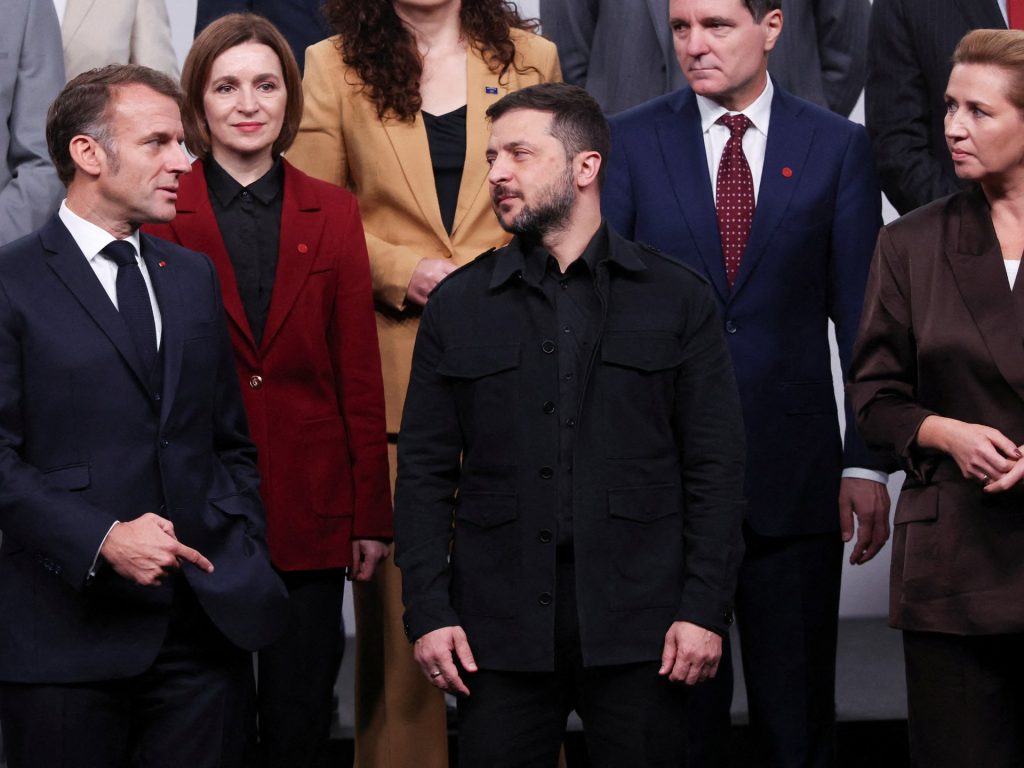
European Union leaders are considering a “reparations plan” that would use frozen Russian state assets to provide Ukraine with a $164bn loan to help fund its reconstruction after the war with Russia ends. Leaders expressed a mixture of support and caution for the plan on Wednesday as they met in the Danish capital, Copenhagen, days after drones were spotted in Denmark’s airspace, prompting airport closures. While the drones in Denmark were not formally identified as Russian, other European countries, including Poland, Romania and Estonia, have accused Russia of drone incursions into their airspace in September. Recommended Stories list of 4 itemsend of list “I strongly support the idea,” Danish Prime Minister Mette Frederiksen said. Swedish Prime Minister Ulf Kristersson also said he was “very much in favour” of the plan. Others said there could be legal complications, however. Here is what we know about Europe’s “reparations plan”, how it may work and what the response from Russia is likely to be. What is Europe’s ‘reparations plan’? The reparations plan was first outlined by European Commission President Ursula von der Leyen in mid-September, and backing for it has grown as United States financial support for Ukraine wanes. During his 2024 presidential campaign, US President Donald Trump promised voters he would pull the US back from providing high levels of financial and military aid to Ukraine. Since the beginning of his term in January, Trump has made it clear the US will take a back seat in terms of providing financial support and security guarantees to Ukraine, indicating Europe should fill the gap instead. Advertisement Europe’s plan would use Russian assets frozen in European banks as collateral for a 140-billion-euro ($164.4bn) loan to Ukraine. Repayments for the loan would be recouped via war reparations from Russia, but the loan would also be guaranteed either in the EU’s next long-term budget or by individual EU member states. “We need a more structural solution for military support,” von der Leyen said on Tuesday. “This is why I have put forward the idea of a reparations loan that is based on the immobilised Russian assets.” How much in frozen Russian assets does Europe hold? About $300bn in Russian Central Bank assets have been frozen by the US and European countries since Russia’s invasion of Ukraine in February 2022. Most of this – $246.9bn – is held in Europe, of which $217.5bn – the vast majority in cash – is held by Euroclear, a Belgium-based capital markets company. On June 30, Euroclear reported the Russian sanctioned assets on its balance sheet generated $3.2bn in interest during the first half of 2025, a drop from the $4bn in interest earned over the same period last year. What are the challenges to this plan? Under international law, a sovereign country’s assets cannot simply be confiscated. Hence, loaning this money to Ukraine would be an infringement of Moscow’s sovereign claim over its central bank assets. Since most of the assets are held in Belgium, the country has asked for the plan to be fleshed out in case it is required to return the assets to Russia. “I explained to my colleagues yesterday that I want their signature saying, ‘If we take Putin’s money, we use it, we’re all going to be responsible if it goes wrong,’” Belgian Prime Minister Bart De Wever told reporters in Copenhagen on Thursday. On Wednesday, von der Leyen said: “It’s absolutely clear that Belgium cannot be the one who is the only member state that is carrying the risk. The risk has to be put on broader shoulders.” Are any European leaders hesitant about this plan? Yes. Besides De Wever, other European leaders have expressed hesitation or have asked their fellow leaders to work out more details of the plan before they agree to it. Dutch Prime Minister Dick Schoof said the proposal should be considered very carefully, given the legal and financial risks that could arise. Others also signalled caution. “I think that’s a difficult legal question,” Luxembourg Prime Minister Luc Frieden told reporters. “You can’t just take over assets that belong to another state so easily.” Frieden added: “There are now other proposals on the table, but these also raise a whole host of questions. I would like to have answers to these questions first. Among other things, how would such a loan be repaid? What would happen if Russia did not repay these reparations in a peace treaty?” Advertisement Is the plan likely to go ahead? Experts said European leaders would likely have to find a way to make the plan viable as the prospects of further US aid for Ukraine dry up. “It is going to happen because with the US walking away, Europe is left with $100bn-plus annual funding needs for Ukraine,” Timothy Ash, an associate fellow in the Russia and Eurasia programme at Chatham House, told Al Jazeera. Ash explained that the bigger challenge for Europe would be to not go ahead with the plan if it means leaving Ukraine underfunded generally and placing it at higher risk of losing the war with Russia. “Risks to Europe would then be catastrophic,” he said, including the prospect of tens of millions of Ukrainians migrating west into Europe. If a Ukrainian loss in the war becomes more likely, European nations would be forced to ramp up defence spending to 5 percent of their gross domestic products (GDPs) much faster than expected. In June, members of NATO pledged to increase their defence spending to 5 percent of their GDPs by 2035. Such an acceleration “would mean higher budget deficits, higher borrowing costs, more debt, less growth and a weaker Europe and euro”, Ash said. How has Russia responded? Moscow has rebuked the EU plan, calling it a “theft” of Russian money. “We are talking about plans for the illegal seizure of Russian property. In Russia, we call that simply theft,” Kremlin spokesman Dmitry Peskov told reporters on Wednesday. Peskov said anyone involved in seizing Russian assets “will be prosecuted in one
Intercepted Gaza flotilla boats arrive at Israel’s Ashdod port
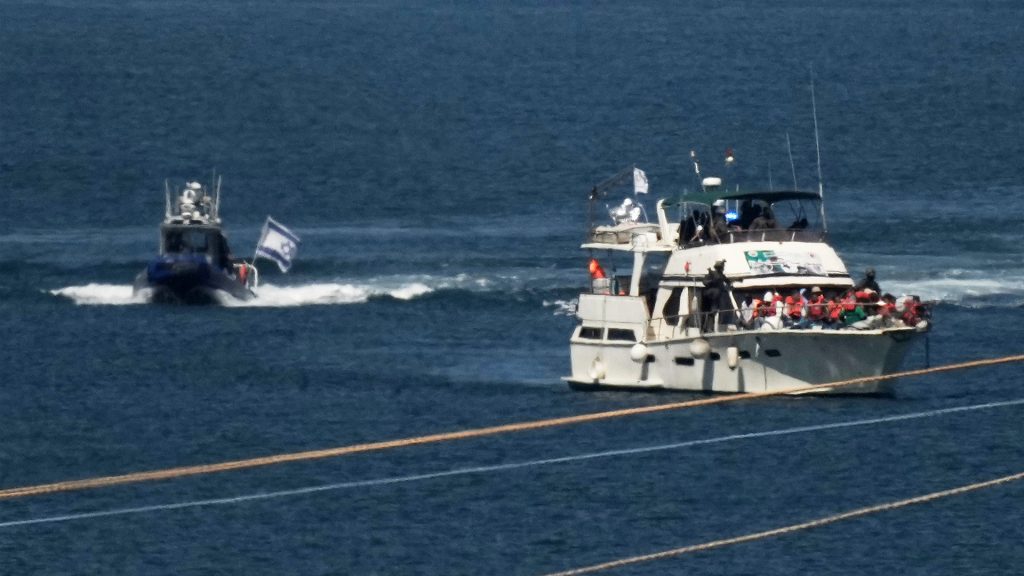
NewsFeed Several boats from the Global Sumud Flotilla arrived at Israel’s Ashdod port on Thursday flying Palestinian flags, after being intercepted by the Israeli navy. Israel said it had intercepted at least 40 vessels from the flotilla, and that those on board have been detained. Published On 2 Oct 20252 Oct 2025 Click here to share on social media share2 Share Adblock test (Why?)
Renowned chimpanzee researcher Jane Goodall dies at 91
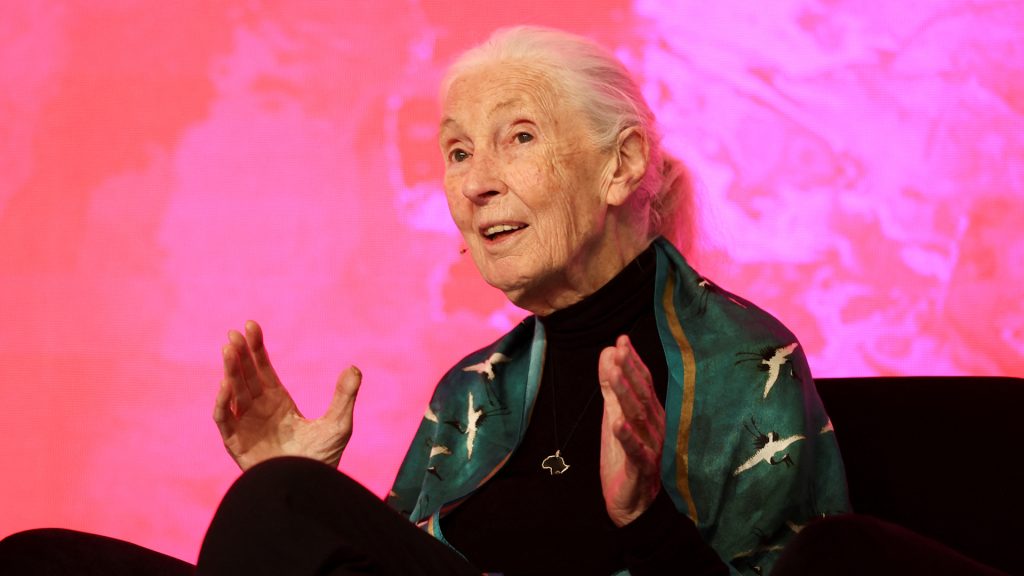
NewsFeed Jane Goodall, the British conservationist and primatologist renowned for her groundbreaking research on chimpanzees, has died at age 91. Goodall revolutionised the study of humans’ nearest animal relatives and became a global advocate for wildlife and the planet. Published On 2 Oct 20252 Oct 2025 Click here to share on social media share2 Share Adblock test (Why?)
Israeli forces board Gaza flotilla, detain Greta Thunberg, other activists

The Israeli military has intercepted several ships from the flotilla of vessels carrying humanitarian aid to the besieged Gaza Strip, detaining many of the activists on board. At least three ships from the Global Sumud Flotilla, made up of 44 vessels and some 500 activists, were intercepted approximately 70 nautical miles (130km) from the coast of Gaza, according to organisers. Recommended Stories list of 3 itemsend of list Israel’s Ministry of Foreign Affairs said in a post on X on Wednesday that “several vessels” of the flotilla were “safely stopped and their passengers are being transferred to an Israeli port”. It wrote that Swedish activist Greta Thunberg, who had been on board the lead ship Alma, “and her friends are safe and healthy”. The ministry also shared a video showing Thunberg. So far, at least six ships have been intercepted by the Israeli navy, according to the activist group. The names of the vessels are Deir Yassin/Mali, Huga, Spectre, Adara, Alma and Sirius. Several ships were targeted by acts of “active aggression”, it said. “Florida vessel has been deliberately rammed at sea. Yulara, Meteque and others have been targeted with water cannons,” it said on Telegram. All passengers on board were unharmed, it added. Before being intercepted, the vessels had succeeded in sailing beyond the point where the Madleen Flotilla was intercepted by Israeli forces earlier this year. Before the interceptions began, the activists warned the Israeli military had cut off their connection by disabling their devices, which affected their cameras, their livestreams and communications systems that allowed the ships to relay messages to the world. Advertisement The Global Sumud Flotilla’s official channels denounced Israel’s actions in a statement, saying the mission’s vessels were being “illegally intercepted”. “People of conscience have been abducted,” it said on X. “The flotilla broke no laws. What is illegal is Israel’s genocide, Israel’s illegal blockade of Gaza, and Israel’s use of starvation as a weapon.” The statement urged supporters to pressure governments to act, writing: “Demand your government cut ties with Israel.” United States citizen and activist Leila Hegazy, who is on one of the vessels, posted a prerecorded message on social media stating that her sharing the video means she has been “kidnapped by the Israeli occupation forces and brought to Israel against [her] will”. “I ask you all to pressure the United States government to end its complicity in the genocide of the Palestinian people in Gaza and also to ensure the safe return of every humanitarian on this mission,” she said. Hassan Jabareen, director of the legal centre Adalah, which has represented flotilla activists in the past, told Al Jazeera that “this time, we do not know what Israel will do”. The activists could be deported within 72 hours, according to the law, or brought to court within 96 hours. He added that some activists could be arrested but noted that Israel usually opts for immediate release. “If they arrest and detain them, it can lead to a losing situation, because media coverage will continue as long as they are in custody,” Jabareen said. Israel’s ambassador to the United Nations, Danny Danon, said the activists would be deported once the Jewish holiday of Yom Kippur concludes on Thursday. Turkiye’s Ministry of Foreign Affairs condemned Israel’s interception of the boats, denouncing it as an “act of terrorism” and a severe breach of international law. In a statement, the ministry said it was taking initiatives to ensure the immediate release of Turkish citizens and other passengers detained by the Israeli forces. Italy’s Foreign Minister Antonio Tajani said the Israeli operation was expected to take two to three hours. He told state TV Rai that the boats would be towed to Israel’s port of Ashdod and the activists would be deported in the coming days. He also said Israeli forces have been told “not to use violence”. As news of the interceptions circulated on social media, protests broke out across several major world cities, including Athens, Rome, Berlin, Brussels, Tunis and Ankara. Italy’s largest union called a general strike for Friday in protest over the treatment of the Sumud Flotilla. Adblock test (Why?)
FBI cuts ties with Anti-Defamation League amid conservative backlash
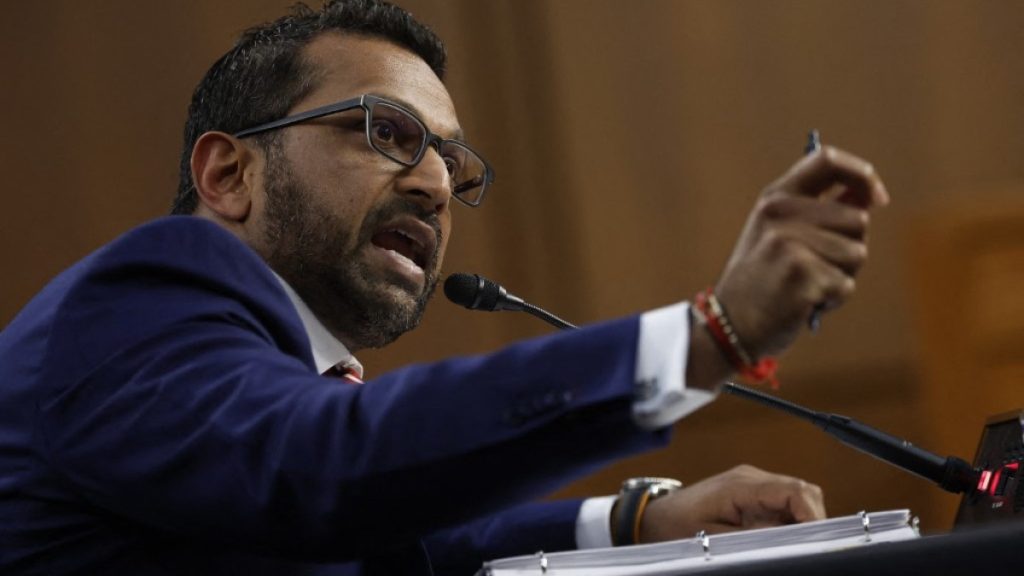
FBI Director Kash Patel announces break with anti-Semitism watchdog amid outrage over description of Charlie Kirk. Published On 2 Oct 20252 Oct 2025 Click here to share on social media share2 Share The top law enforcement agency in the United States has cut ties with the Anti-Defamation League (ADL), accusing the Jewish advocacy organisation and anti-Semitism watchdog of spying on conservatives. FBI Director Kash Patel made the announcement on Wednesday after prominent conservative influencers, including Elon Musk, pounced on the ADL’s inclusion of the murdered right-wing activist Charlie Kirk in its “Glossary of Extremism and Hate”. Recommended Stories list of 4 itemsend of list In a brief statement, Patel singled out the ADL’s associations with former FBI Director James Comey, a strident critic of President Donald Trump who was indicted last week on charges of obstruction and lying to the US Congress. Patel said Comey had written “love letters” to the ADL and embedded agents within the group, which he accused of running “disgraceful ops spying on Americans”. “This FBI won’t partner with political fronts masquerading as watchdogs,” Patel said in a social media post. In a 2014 speech to the ADL’s National Leadership Summit, Comey said the FBI had made the advocacy group’s Law Enforcement and Society training mandatory for personnel and partnered with it to draft a “Hate Crimes Training Manual”. Comey called the ADL’s experience in investigating hate crimes “essential” and its training “eye-opening and insightful”. “If this sounds a bit like a love letter to the ADL, it is, and rightly so,” he said. While Patel did not mention Kirk in his statement, his announcement came just a day after the ADL removed more than 1,000 entries about alleged extremism from its website amid right-wing outrage over references to the late activist. Advertisement The ADL said it made the decision as many of the terms were outdated and a number of entries had been “intentionally misrepresented and misused”. In a since-deleted entry on Kirk and his youth organisation Turning Point USA (TPUSA), the ADL said Kirk promoted “Christian nationalism” and “numerous conspiracy theories about election fraud and Covid-19 and has demonised the transgender community”. The entry also said TPUSA attracted racists, that its representatives had made “bigoted remarks” about minority groups and the LGBTQ community, and that white nationalists had attended its events, “even though the group says it rejects white supremacist ideology”. Kirk himself strongly criticised the ADL while he was alive, once describing it as a “hate group that dons a religious mask to justify stoking hatred of the left’s enemies”. In a statement responding to Patel’s remarks on Wednesday, the ADL said it had “deep respect” for the FBI and all law enforcement officers who work to protect Americans regardless of their ancestry, religion, ethnicity, faith and political affiliation. “In light of an unprecedented surge of antisemitism, we remain more committed than ever to our core purpose to protect the Jewish people,” it said. Adblock test (Why?)

